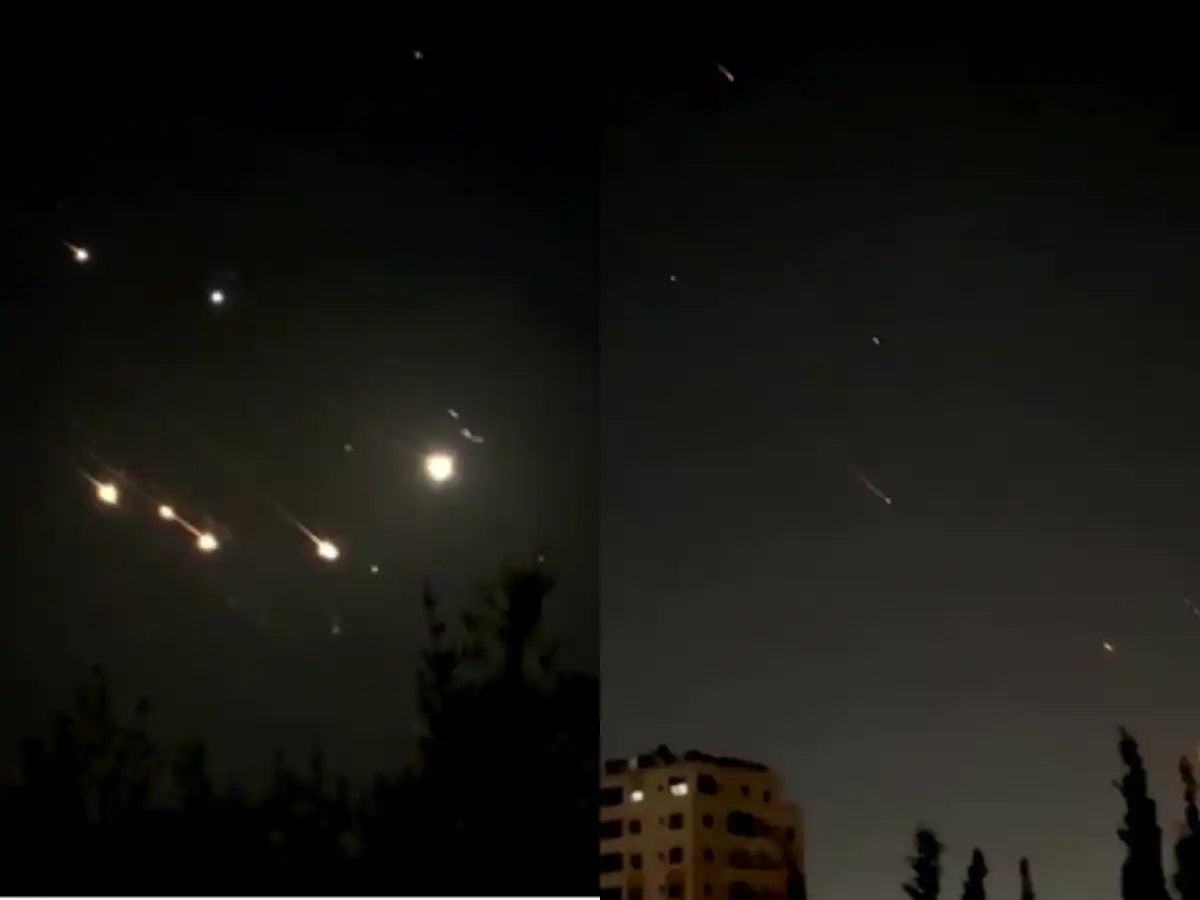
In a significant escalation of tensions, Iran launched a major missile and drone attack on Israel on Saturday, the first full-scale military assault against its “longtime foe.” Tehran launched more than 300 drones and missiles toward Israel, according to Israeli military spokesman Daniel Hagari. The US, along with a coalition that includes France and Britain, assisted Israel in intercepting the vast majority of the incoming projectiles. Hagari stated that over 99% of the missiles and drones were intercepted.
In addition to the Iron Dome air defense system, Israeli forces were supported by US, UK, and Jordanian aircraft and anti-air countermeasures, with Jordan which has experienced months’ long protests against Israeli aggression in the region facing heavy criticism, at home and abroad, for “defending Israel.”
Despite the large-scale attack, damage inside Israel was minor. A military base sustained minor damage from a ballistic missile strike, and a young girl was seriously injured. The Iranian attack comes one week after a deadly Israeli airstrike on an Iranian diplomatic compound in Syria that killed seven Iranian personnel, including senior commanders.
World leaders are scrambling to contain the escalating crisis. The Group of Seven (G7) leaders are scheduled to meet today to discuss the attack, and the United Nations Security Council is anticipated to convene this afternoon. Israel’s ambassador to the UN has called for the designation of Iran’s Islamic Revolutionary Guard Corps (IRGC) as a terrorist organization. The commander of Iran’s IRGC has warned of a more forceful response if Israel retaliates for the attack. Iran has also cautioned the US to avoid intervening in the conflict.
However, despite concerns from the international community many analysts and commentators have expressed the view that the attacks, which launched drones and missiles taking several hours to reach Israel, were not serious. Some point out that Iran and its regional proxies often attack regions of liberated Syria, like Idlib, in retaliation for Israeli attacks – with much greater frequency and success.
Among such skeptics is Syrian-based political analyst Motaz Nasser, who believes the recent tit-for-tat attacks are a continuation of a long-standing rivalry between Iran and Israel, rather than a prelude to all-out war. Nasser said, “The Iranian-Israeli war may be ignited by both parties for many reasons, including…re-polishing the image of the ‘resistance alliance’…and contaminating the real resistance to Israel.”
He posits rather than having an actual adversarial relationship with the aim being the “zero-sum” destruction of the other the two are, in fact, competitors, for the domination and occupation of the predominantly Sunni Arab populations in the region (Lebanon, Palestine, Syria, Jordan.)
The situation remains tense, and it is unclear how Israel will respond to Iran’s attack. The international community is urging both sides to exercise restraint and avoid further escalation.








